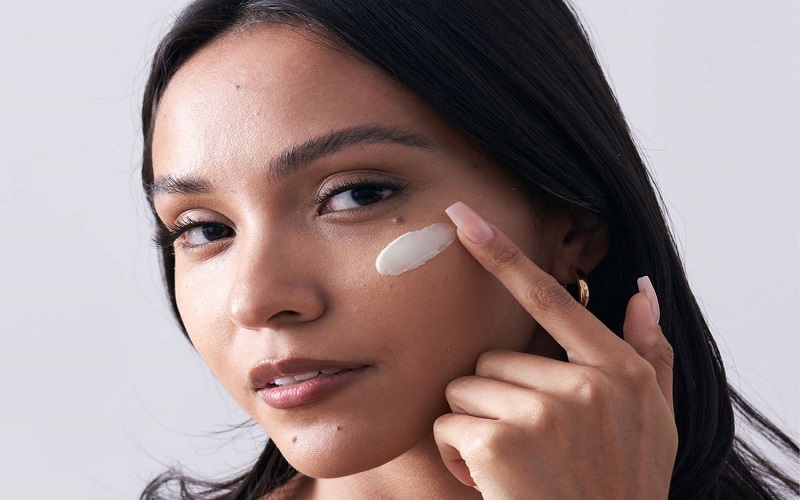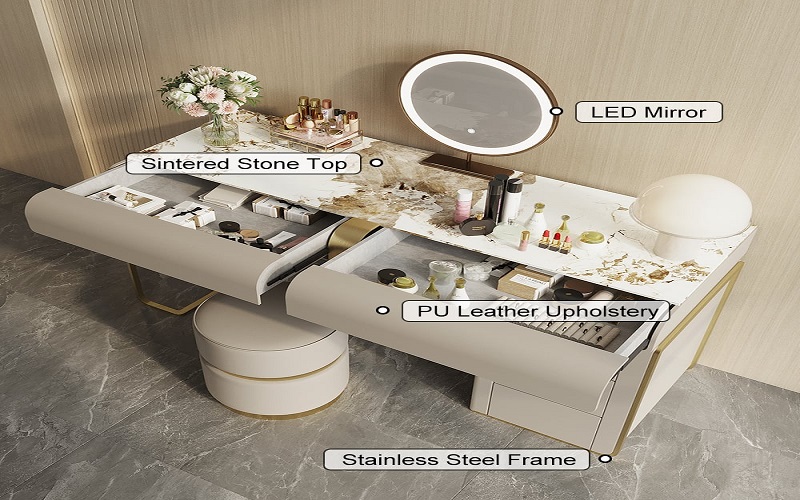Acne is one of the maximum not unusual skin worries internationally, affecting millions of human beings irrespective of age or gender. If you warfare with zits, retaining a healthy skin care recurring and selecting the right makeup products can feel overwhelming. One product that regularly raises questions is makeup primer. Is it a must-have in your makeup recurring when you have pimples, or should i use makeup primer if i have acne?
This weblog will discover the pros and cons of using makeup primer if you have pimples, provide suggestions for selecting the right primer, and describe a way to incorporate it into your habitual for clean, sparkling pores and skin.
Understanding Acne and Makeup Primer
To determine whether or not a make-up primer is suitable for acne-susceptible pores and skin, it’s essential to apprehend both pimples and the position of primers.
What Causes Acne?
Acne develops whilst hair follicles turn out to be clogged with oil (sebum), dead skin cells, and bacteria. Hormonal changes, stress, poor skincare routines, and certain nutritional factors can exacerbate pimples. For people with touchy or pimples-prone skin, using heavy or pore-clogging merchandise can trigger breakouts.
What is a Makeup Primer?
A makeup primer is a base product applied before the basis to create a smooth surface for make-up software. Primers can serve diverse functions, along with:
- Filling in excellent strains and pores
- Controlling oil and shine
- Hydrating the skin
- Enhancing the longevity of makeup
Primers are available in quite a number formulations, such as silicone-based totally, water-based totally, mattifying, hydrating, and colour-correcting varieties.
The Benefits of Using Makeup Primer for Acne-Prone Skin
If you have got pimples, you may be surprised whether a primer may want to make things worse. However, while selected wisely and used successfully, a makeup primer can offer several advantages for zits-prone skin.
1. Provides a Barrier Between Skin and Makeup
One of the most good sized benefits of primers is their potential to create a barrier among your pores and skin and make-up. This barrier minimizes the direct contact of foundation and different makeup products along with your pores and skin, decreasing the chance of clogged pores and breakouts.
2. Controls Oil Production
Excess oil is a commonplace contributor to acne. Many primers are specifically formulated to control oil production and mattify the skin, preventing makeup from sliding off your face at some point of the day. Oil-controlling primers may be mainly beneficial if you have oily, acne-susceptible skin.
3. Minimizes the Appearance of Pores
Large, seen pores are often a situation for those with acne. A precise primer can blur and fill in pores, creating a smoother canvas for makeup utility.
4. Reduces Redness and Inflammation
Primers with coloration-correcting houses, inclusive of inexperienced-tinted primers, can neutralize redness caused by pimples or irritation. This allows lessening the quantity of foundation wished, which is useful for preventing clogged pores.
5. Prolongs Makeup Wear
If you have got acne, your make-up habitual would possibly contain layering concealer and basis for ok coverage. A primer can help preserve your makeup in the region for longer, reducing the want for contact-united states and minimizing the risk of worrying your skin.
The Risks of Using Makeup Primer for Acne-Prone Skin
Despite the advantages, there are ability risks related to using make-up primers, especially if you have zits-prone skin.
- 1. Pore-Clogging Ingredients
Some primers, specially those that are silicone-based, can also contain elements that may clog pores (comedogenic). This can cause breakouts and get worse current pimples.
- 2. Allergic Reactions or Irritation
Certain primers may additionally consist of fragrances, alcohol, or other harsh elements that can aggravate touchy or acne-inclined skin. Always take a look at the ingredient listing to ensure the product is safe for your skin type.
- 3. Heavy or Greasy Formulas
Primers with heavy or greasy textures won’t sit properly on zits-prone skin, leading to a cakey end or exacerbating oiliness.
How to Choose the Right Makeup Primer for Acne-Prone Skin
Choosing the right primer is vital for attaining the desired benefits while minimizing potential dangers.
Here’s a guide to help you select the appropriate primer in your skin type:
1. Look for Non-Comedogenic Products
The term “non-comedogenic” suggests that the product is formulated to avoid clogging pores. Always opt for primers categorised as non-comedogenic when you have zits-inclined skin.
2. Choose Oil-Free Formulas
Oil-unfastened primers are perfect for controlling excess shine and reducing the likelihood of clogged pores.
3. Seek Acne-Fighting Ingredients
Some primers incorporate ingredients which could actively advantage zits-inclined skin. Look for:
- Salicylic Acid: Helps unclog pores and reduce zits.
- Niacinamide: Soothes infection and redness.
- Tea Tree Oil: Has antibacterial residues which can fight acne-inflicting micro organisms.
4. Avoid Harsh Additives
Stay faraway from primers that comprise fragrances, alcohol, or artificial dyes, as these can worsen sensitive pores and skin and exacerbate pimples.
5. Consider a Mattifying Primer
If you’ve got oily skin, a mattifying primer can assist manipulate shine and keep your make-up looking fresh during the day.
6. Test the Product First
Before committing to a new primer, carry out a patch test to make sure it doesn’t cause infection or hypersensitive reactions. Apply a small quantity for your jawline or wrist and wait 24 hours to test for any damaging effects.
Application Tips for Acne-Prone Skin
Using a primer efficiently is just as important as deciding on the proper one. Follow these steps to incorporate primer into your make-up habitual with out anxious your zits-inclined skin:
Tips-1: Start with a Clean Face
Begin with a gentle cleaner to get rid of dirt, oil, and impurities. This guarantees an easy base to your primer and makeup.
Tips-2: Moisturize First
Even if you have oily pores and skin, moisturizing is critical. Choose an oil-free, non-comedogenic moisturizer to hydrate your pores and skin without clogging pores.
Tips-3: Use a Minimal Amount
A little is going a long way with primer. Apply a small pea-sized quantity and gently unfold it across your face, focusing on areas with visible pores or redness.
Tips-4: Pat, Don’t Rub
When making use of primer, use easy fingers or a make-up sponge to pat the product into your pores and skin. Avoid rubbing, as this can aggravate pimples and cause similarly redness.
Tips-5: Wait Before Applying Foundation
Allow the primer to set for a few minutes earlier than applying foundation. This allows the primer to create a proper barrier and guarantees smoother makeup application.
Best Makeup Primers for Acne-Prone Skin
Here are a few notably recommended primers that cater specifically to acne-inclined skin:
- Smashbox Photo Finish Oil-Free Foundation Primer
Non-comedogenic, lightweight, and ideal for controlling oil and shine.
- E.L.F. Blemish Control Face Primer
Contains salicylic acid to fight pimples whilst smoothing the skin.
- NYX Professional Makeup Pore Filler
Reduces the advent of pores and is free from heavy oils.
- Laura Mercier Pure Canvas Primer – Blurring
Silicone-loose, lightweight, and mattifying for shiny, zits-inclined skin.
- Clinique Acne Solutions BB Gel
Offers a sheer tint and contains acne-fighting elements.
Alternatives to Makeup Primer
If you’re hesitant approximately the use of a traditional make-up primer, don’t forget these alternatives:
- Moisturizing Sunscreen
- An oil-loose, non-comedogenic sunscreen can provide a clean base for make-up while defending your skin from harmful UV rays.
- Serums with Silicone-Like Effects
- Certain serums with smoothing houses can double as a primer whilst handing over skincare advantages.
- Setting Sprays
- If your number one purpose is to increase makeup put on, a putting spray can attain this without the want for a primer.
Final Thoughts
Using a make-up primer if you have pimples may be both a blessing and a challenge. The secret’s to select a primer tailored to your pores and skin’s needs, prioritize non-comedogenic and acne-combating elements, and follow a cautious application procedure.
Ultimately, whether or no longer you must use primer depends on your pores and skin type, worries, and private possibilities. If you’re still uncertain, talk over with a dermatologist to determine the pleasant products for your skin care and makeup. With the right picks, you could optimistically rock a perfect appearance without compromising your pores and skin’s fitness.
Frequently Asked Questions (FAQs)
- Can Primer Cause Breakouts?
Yes, if the primer contains pore-clogging or irritating ingredients. Always choose a non-comedogenic, oil-free primer.
- Can I Skip Primer Altogether?
Yes, primer is optional. If you maintain a good skincare routine and choose quality makeup products, you can achieve a flawless look without primer.
- Should I Use a Primer Every Day?
It depends on your makeup routine. For daily use, opt for a lightweight, skin-friendly primer to avoid overloading your skin.



